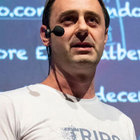some of the brightest examples of brands and platforms using the Metaverse
Exploring the Practical Business Applications of the Metaverse. What do hotels need to know?
Metaverse and Web3 in Hospitality — Viewpoint by Simone Puorto
The notion of a world where hybrid and digital coexist with a full-fledged economy has yet to be realized, but we're already seeing pieces of those being implemented.
At this time no extended reality platform enables users' avatars to live, work and travel in what many are calling the next version of the internet. And it's unclear how, when and whether extended reality projects will converge and integrate to become that vision.
However, although destinations have not yet fully understood the new web application, they have already started tracking it to improve sales and marketing strategies, enhance guest experiences, and create experiential marketing opportunities for travelers, such as tours of local businesses and new product offerings. In this unique environment, potential audiences can compare businesses, attractions, services, and hotel accommodations virtually.
Today, when people say "the metaverse," that generally refers to a 3D digital world where people work and play experiencing the blend of the physical and virtual world in a way that feels real and permanent.
Virtual reality will be just one of the ways to access metaverse, and some say that it will not even be the most important.
What kind of synergy exists between tourism and the metaverse? Tourism and the metaverse are inextricably interwoven, as seen by the ability to create digital representations of real-world objects and environments.
This capability illustrates the tight connection between the two.
Headsets that deliver a virtual reality experience, sometimes known as VR, allow users to go to distant locations without leaving their homes. Nevertheless, it is crucial to separate metaverse tourism from VR tourism, since the metaverse is capable of considerably more than virtual reality experiences. Virtual Reality is only one of the metaverse technologies that can influence the products and services supplied by Metaverse Tourism.
Below are a couple of the brightest examples of brands and platforms using the Metaverse.
- Millennium Hotels x Decentraland
Imagine your avatar feeling tired from walking around all day, completing challenges and competing in games. Just like the person behind the screen, your avatar would need a place for rest and recreation. This is what Millenium Hotels offered to Decentraland players.
MullenLowe Singapore has partnered with Millennium Hotels and Resorts to launch M Social Decentraland, making it the world's first hospitality group to operate a hotel in the metaverse virtual world. Guests who step inside M Social Decentraland can interact with an avatar that welcomes everyone in the lobby. The avatar guides guests through the hotel. Those who reach the top of Decentraland, and share a screenshot of their Avatar with hashtag #MSocialDecentraland on their social channels, have a chance to win real-world hotel rewards.
Aside from being the first of its kind, Millennium Hotels' marketing strategy was also able to integrate the real and virtual world–it gave virtual guests a chance to experience real-life hotel experiences and perks, creating unique social connections with their guests.
- Atlanta meta word
Atlanta has initiated the process of marketing to consumers through Metaverse in the comfort of their homes, provided virtual travelers with immersive experiences that detail LGBTQ itineraries, hosting a wedding in the destination, planning the next event, and tips for getting around the city.
When travelers are done exploring in a virtual setting, Atlanta has included links to purchasing real-time attractions such as their aquarium or connecting them with professionals who can make their event a reality.
- Notre Dame Gets The VR Treatment
While Parisian landmark Notre Dame remains closed after a devastating fire in 2019, history buffs can be treated to the next best thing – a virtual reality experience that brings the cathedral – and its history – to life.
Called Eternal Notre Dame, the hyper-realistic, 45-minute experience was created by VR studio Emissive in collaboration with Amaclio Productions and The Orange Group. It takes participants on a journey back to the Middle Ages, when the cathedral was constructed, and brings them up to date via the major historical events and key players that have made their mark on the iconic structure.
- Even we are not strictly speaking about "travel industry", Disney is a great example of "destination marketing". Disney Land in real life offers customers incredible experiences within their theme park. Since December 2021, the Disney team has started filing patents for virtual simulators that can assist in creating a virtual version of their theme park in the 3D digital space.
In December 2021, Disney filed a patent for a virtual-world simulator replicating one of the Disney theme parks into AR. Additionally, Disney is integrating physical, digital, and virtual worlds with its MagicBand+ wrist device that allows guests access to their favorite Disney past times.
Disney has also recently revealed its sheer interest in investing in the Metaverse and generating unique content for the simulated environment, naming it "the next great storytelling frontier".
It will take time for the Metaverse to really take off, but, with its convincing abilities, metaverse has the power to fundamentally alter travel and tourism and be a sought-after experience in itself

 by
by 

